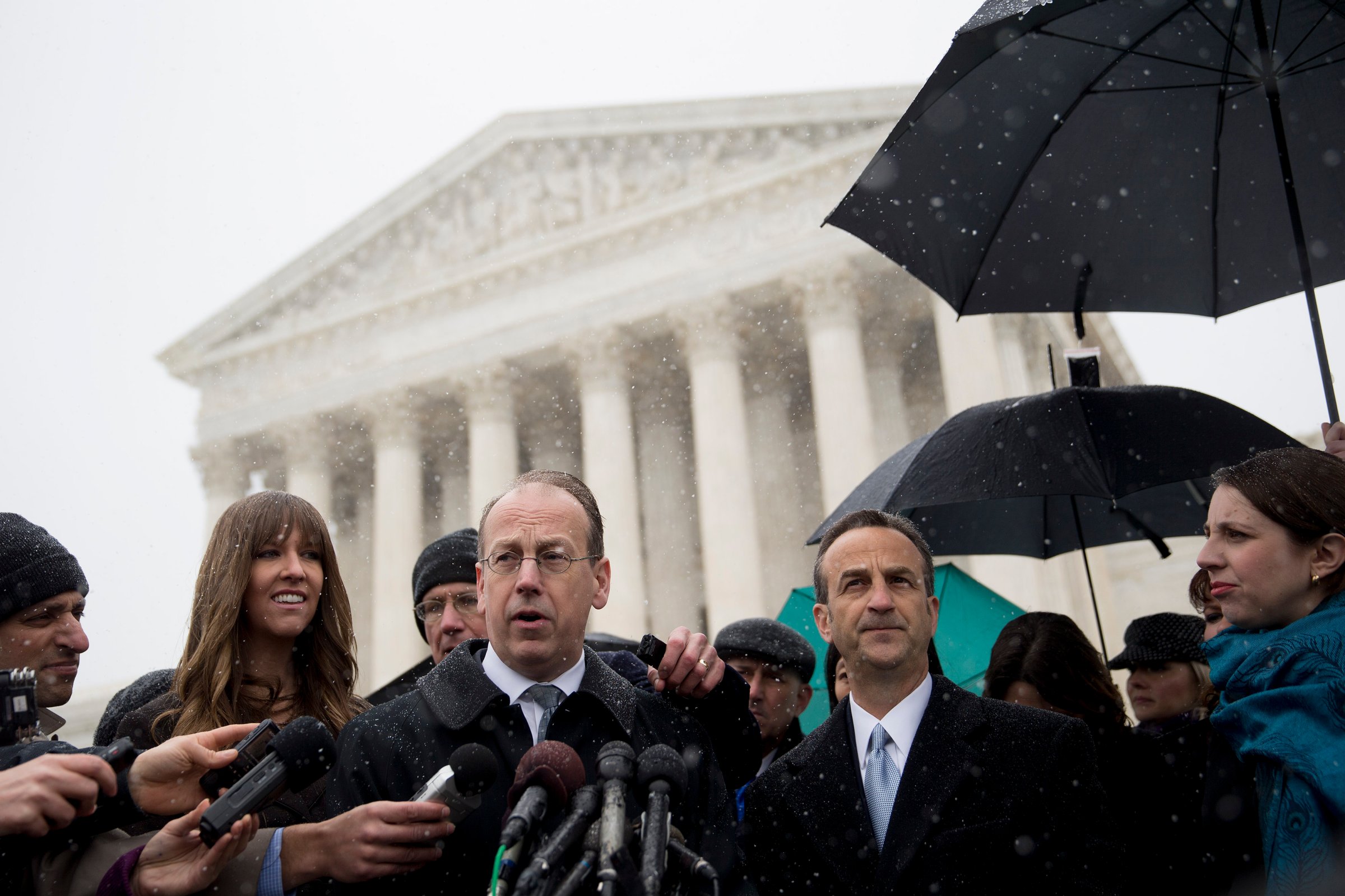
Electioneering from the pulpit is a very bad idea, but champions of this particular bad idea seem to feel that its time has come. Let’s hope, for the sake of religion in America, that they are wrong.
On October 5, referred to by its organizers as “Pulpit Freedom Sunday,” more than 1,500 pastors preached sermons about political candidates and their views on matters before the electorate. The day was organized by Alliance Defending Freedom, a group that advocates the absolute right of clergy to endorse candidates or parties without interference from the government or the IRS.
According to IRS regulations, churches can speak out on issues and values; however, they are forbidden to participate in political campaigns or to intervene in any way on behalf of any political candidate. A pastor can give a sermon on poverty or health care, but violates IRS policy if he endorses a candidate. Breaking these rules can lead to the revocation of the church’s tax-exempt status.
The rules, supported by most Americans, are eminently sensible. Freedom of speech and religion are guaranteed by the Constitution, and a priest, rabbi or imam can say whatever he or she pleases from the pulpit. But the Constitution does not guarantee places of worship the benefits of tax exemption, which are considerable. According to Dylan Matthews in the Washington Post, these subsidies cost the government $80 billion in revenue every year. In short, the American people value religion and are prepared, by way of their government’s taxing authority, to foot the bill for much of the good work that places of worship do. But if a church or its religious leader wants to enter the partisan political fray and support a specific candidate, that is one step too far. In that case, the church is required to give up its tax exemption and pay for its electioneering itself.
But the Alliance disagrees. It contends that freedom of religion confers on clergy the right to endorse local, state and national candidates from the pulpit while their churches retain all of their tax benefits. And the purpose of its current campaign is to prod the IRS into taking action against a pastor who violates the rules, thereby generating a test case that it can carry to the U.S. Supreme Court.
One would like to think that the efforts of the Alliance are doomed to failure. Indeed, for most of the last half century, such a campaign would have seemed fanciful, if not absurd. Its goal, after all, is contrary to both established practice and common sense. Nonetheless, there is reason for concern.
In the first place, the IRS has not consistently enforced its own policies. While the overwhelming majority of clergy do not endorse political candidates, there are exceptions; conservative, Evangelical churches, such as those organized by the Alliance, are one example, and left-leaning African-American churches are another. It’s interesting that Pulpit Freedom Sunday was also the day that New York Governor Andrew Cuomo, running for a second term, visited churches in Queens and Brooklyn to ask for support from black congregants. At the Greater Allen A.M.E. Cathedral in Jamaica, Queens, the Rev. Floyd H. Flake, a former congressman, expressed his support for Cuomo, offering the equivalent of a political endorsement if not a formal one.
Part of the issue seems to be that the IRS does not want a challenge in the courts. Therefore, it has refused to be goaded into taking action by the law breakers, and in particular by the Pulpit Freedom Sunday participants, who have been holding an annual event and growing in numbers for six years. But ignoring enforcement is always a bad strategy. It breeds disrespect for the law and encourages more pulpit law breaking from every political direction.
In the second place, if the IRS finally stands its ground and the result is a legal challenge that reaches the Supreme Court, it is more likely now than before that the Supreme Court will be sympathetic to the Alliance arguments. In Burwell v. Hobby Lobby Stores, Inc., arguably the most significant case of the Supreme Court term, the Court granted a special status to religious objectors and religious freedom that was seemingly without basis in precedent. This is good in some ways, but not so good in others; freedom of religion is not absolute and needs to be balanced against other rights and freedoms. It is hard to imagine the legal grounds for a decision that would grant churches the unrestricted right to enter the political process while still benefiting from the financial largesse of the taxpayer, but such an outcome is no longer impossible.
Once ministers, priests, rabbis and imams are entitled to endorse candidates without restriction, they will be increasingly pressured to do so. The same people who pour money into political campaigns will direct their dollars to houses of worship. And churches, synagogues and mosques will no longer be places of worship; they will be political bazaars.
Rabbi Eric H. Yoffie, a writer and lecturer, was President of the Union for Reform Judaism from 1996 to 2012. His writings are collected at ericyoffie.com.
More Must-Reads from TIME
- Cybersecurity Experts Are Sounding the Alarm on DOGE
- Meet the 2025 Women of the Year
- The Harsh Truth About Disability Inclusion
- Why Do More Young Adults Have Cancer?
- Colman Domingo Leads With Radical Love
- How to Get Better at Doing Things Alone
- Michelle Zauner Stares Down the Darkness
Write to Eric H. Yoffie at eric@ericyoffie.com